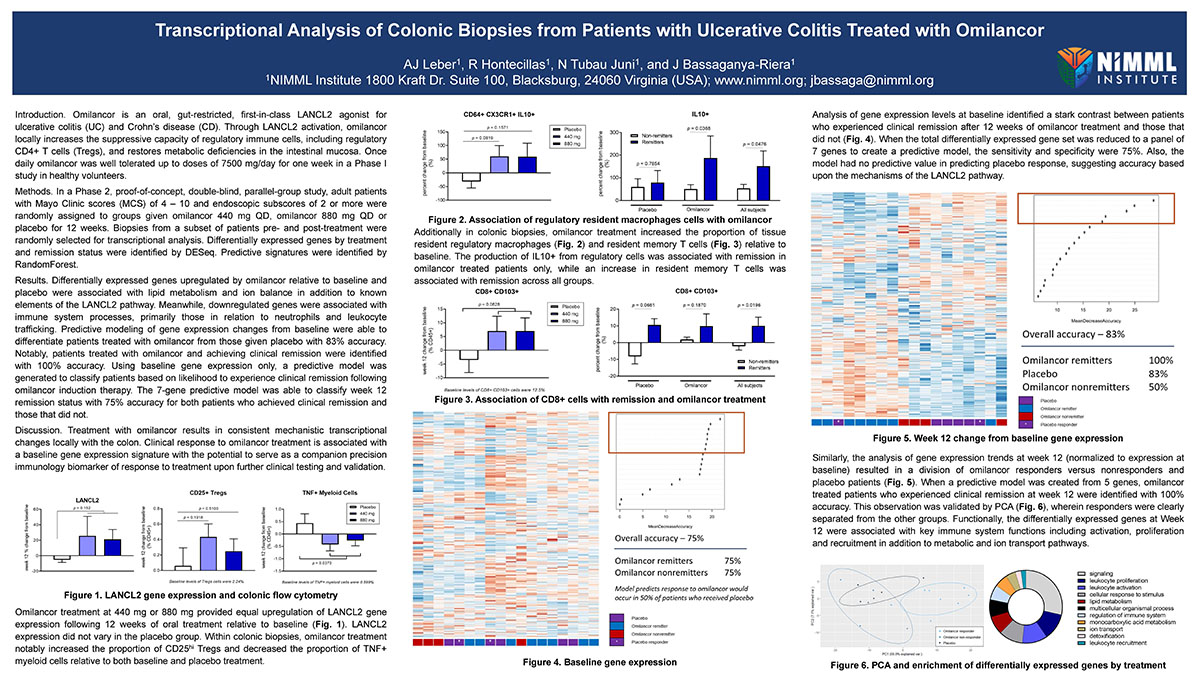Transcriptional Analysis of Colonic Biopsies from Patients with Ulcerative Colitis Treated with Omilancor
Introduction. Omilancor is an oral, gut-restricted, first-in-class LANCL2 agonist for ulcerative colitis (UC) and Crohn’s disease (CD). Through LANCL2 activation, omilancor locally increases the suppressive capacity of regulatory immune cells, including regulatory CD4+ T cells (Tregs), and restores metabolic deficiencies in the intestinal mucosa. Once daily omilancor was well tolerated up to doses of 7500 mg/day for one week in a Phase I study in healthy volunteers.
Methods. In a Phase 2, proof-of-concept, double-blind, parallel-group study, adult patients with Mayo Clinic scores (MCS) of 4 – 10 and endoscopic subscores of 2 or more were randomly assigned to groups given omilancor 440 mg QD, omilancor 880 mg QD or placebo for 12 weeks. Biopsies from a subset of patients pre- and post-treatment were randomly selected for transcriptional analysis. Differentially expressed genes by treatment and remission status were identified by DESeq. Predictive signatures were identified by RandomForest.
Results. Differentially expressed genes upregulated by omilancor relative to baseline and placebo were associated with lipid metabolism and ion balance in addition to known elements of the LANCL2 pathway. Meanwhile, downregulated genes were associated with immune system processes, primarily those in relation to neutrophils and leukocyte trafficking. Predictive modeling of gene expression changes from baseline were able to differentiate patients treated with omilancor from those given placebo with 83% accuracy. Notably, patients treated with omilancor and achieving clinical remission were identified with 100% accuracy. Using baseline gene expression only, a predictive model was generated to classify patients based on likelihood to experience clinical remission following omilancor induction therapy. The 7-gene predictive model was able to classify week 12 remission status with 75% accuracy for both patients who achieved clinical remission and those that did not.
Discussion. Treatment with omilancor results in consistent mechanistic transcriptional changes locally with the colon. Clinical response to omilancor treatment is associated with a baseline gene expression signature with the potential to serve as a companion precision immunology biomarker of response to treatment upon further clinical testing and validation.

